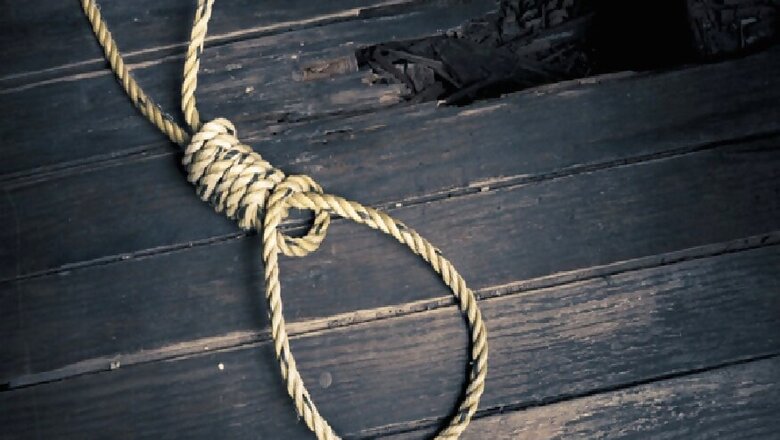
views
New Delhi: The Supreme Court on Monday refused to entertain a petition seeking quashing of a provision in the Code of Criminal Procedure (CrPC) which provides for execution of death row convicts by hanging.
"We are not inclined," said a Bench comprising Chief Justice S A Bobde and Justices B R Gavai and Surya Kant to the petitioner, who had contended that the practice of hanging a person by neck was a "colonial hangover".
An 88-year-old Kerala-based freedom fighter, S Parameswaran Nampoothiri, has challenged the legality and validity of section 354 (5) of the CrPC which stipulates that "when any person is sentenced to death, the sentence shall direct that he be hanged by the neck till he is dead".
Nampoothiri has claimed in his plea that section 354 (5) of the CrPC is against the "letter and spirit" of the Constitution and is violative of the fundamental rights, including under Article 14 (equality before the law) and 21 (protection of life and personal liberty).
"The present writ petition is maintainable as it is an issue concerning the life of the citizens, an issue touching the basic features and basic structure of the Constitution. The petitioner is challenging a practice followed, which is in conflict with the ideals and objectives of the Constitution," said the plea, settled by advocate Wills Mathews.
The plea said that such a way of executing a convict is "not Indian and a continuation of the colonial hangover" and almost all democratic countries have stopped this practice.
It said that "sentencing a person to 'death' invoking section 354(5) CrPC....is in conflict with the basic structure of the Constitution of India and also the basic features of the Constitution of India, its ideals, values, philosophies enshrined in the Constitution, the Fundamental Rights, the Directive principles of the State policy, the Preamble, including the DNA of the Constitution..."
It further said, "Whether in a state where attempt to commit suicide is an offence, whether the state can take the life of its citizens under any circumstances, resulting in violation of its own laws?"

















Comments
0 comment